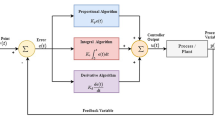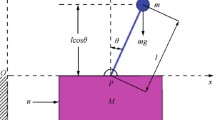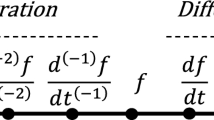Abstract
In this paper, an adaptive swarm learning process (SLP) algorithm for designing the optimal proportional integral and derivative (PID) parameter for a multiple-input multiple-output (MIMO) control system is proposed. The SLP algorithm is proposed to improve the performance and convergence of PID parameter autotuning by applying the swarm algorithm and the learning process. The adaptive SLP algorithm improves the stability, performance and robustness of the traditional SLP algorithm to apply it to a MIMO control system. It can update the online weights of the SLP algorithm caused by the errors in the settling time, rise time and overshoot of the system based on a stable learning rate. The gradient descent is applied to update the weights. The stable learning rate is verified based on the Lyapunov stability theorem. Additionally, simulations are performed to verify the superiority of the algorithm in terms of performance and robustness. Results that compare the adaptive SLP algorithm with the traditional SLP, a neural network (NN), the genetic algorithm (GA), the particle swarm and optimization (PSO) algorithm and the kidney-inspired algorithm (KIA) based on a two-wheel inverted pendulum system are presented. With respect to performance and robustness, the adaptive SLP algorithm provides a better response than the traditional SLP, NN, GA, PSO and KIA.
Similar content being viewed by others
References
S. Chander, P. Agarwal, and I. Gupta, “Auto-tuned, discrete PID controller for DC-DC converter for fast transient response,” Proc. of Int. Conf. on Power Electronics, New Delhi, India, pp. 1–7, 2011.
B. Hekimoğlu, “Optimal tuning of fractional order PID controller for DC motor speed control via chaotic atom search optimization algorithm,” IEEE Access, vol. 7, pp. 38100–38114, 2019.
H. O. Erkol, “Optimal PIλDµ controller design for two wheeled inverted pendulum,” IEEE Access, vol. 6, pp. 75709–75717, 2018.
H. Feng, C. Yin, W. Weng, W. Maa, J. Zhou, W. Jia, and Z. Zhang, “Robotic excavator trajectory control using an improved GA based PID controller,” Mechanical Systems and Signal Processing, vol. 105, pp. 153–168, 2018.
J. Mendes, L. Osório, and R. Araújo, “Self-tuning PID controllers in pursuit of plug and play capacity,” Control Engineering Practice, vol. 69, pp. 73–84, 2017.
H. M. Hasanien, “Design optimization of PID controller in automatic voltage regulator system using Taguchi combined genetic algorithm method,” IEEE Systems J., vol. 7, no. 4, pp. 825–831, 2013.
R. Kurokawa, N. Inoue, T. Sato, O. A. R. Vilanova, and Y. Konishi, “Simple optimal PID tuning method based on assigned robust stability trade off design based on servo regulation performance,” Int. J. of Innovative Computing, Information and Control, vol. 13, no. 6, pp. 1953–1963, 2017.
J. Perng and S. Hsieh, “Design of digital PID control systems based on sensitivity analysis and genetic algorithms,” Int. J. of Control, Automation and Systems, vol. 17, no. 7, pp. 1838–1846, 2019.
I. Malouche and F. Bouani, “A new adaptive partially decentralized PID controller for non-square discrete-time linear parameter varying systems,” Int. J. of Control, Automation and Systems, vol. 16, no. 4, pp. 1670–1680, 2018.
K. Eltag, M. S. Aslamx, and R. Ullah, “Dynamic stability enhancement using fuzzy PID control technology for power system,” Int. J. of Control, Automation and Systems, vol. 17, no. 1, pp. 234–242, 2018.
Z. Civelek, M. L., E. Cam, and H. Mamur, “Proportional-integral-derivative parameter optimisation of blade pitch controller in wind turbines by a new intelligent genetic algorithm,” IET Renewable Power Generation, vol. 10, no. 8, pp. 1220–1228, 2016.
M. R. Rani, H. Selamat, H. Zamzuri, and Z. Ibrahim, “Multi-objective optimization for PID controller tuning using the global ranking genentic algorithm,” Int. J. of Innovative Computing, Information and Control, vol. 8, no. 1, pp. 269–284, 2012.
N. Merayo, D. Juárez, J. C. Aguado, I. D. Miguel, R. J. Durán, P. Fernández, R. M. Lorenzo, and E. J. Abril, “PID controller based on a self-adaptive neural network to ensure qos bandwidth requirements in passive optical networks,” IEEE/OSA J. of Optical Communications and Networking, vol. 9, no. 5, pp. 433–445, 2017.
A. I. AL-Odienat, “The PID controller based on genetic algorithm for voltage stability of the synchronous machine,” Int. J. of Innovative Computing, Information and Control, vol. 10, no. 6, pp. 2263–2276, 2014.
Z. Gaing, “A particle swarm optimization approach for optimum design of PID controller in AVR system,” IEEE Trans. on Energy Conversion, vol. 19, no. 2, pp. 384–391, 2004.
Y. Ye, C. BoYin, Y. Gong, and J. Zhou, “Position control of nonlinear hydraulic system using an improved PSO based PID controller,” Mechanical Systems and Signal Processing, vol. 85, no. 15, pp. 241–259, 2015.
A. Belkadi, H. Oulhadj, Y. Touati, S. A. Khan, and B. Daachi, “On the robust PID adaptive controller for exoskeletons: A particle swarm optimization based approach,” Applied Soft Computing, vol. 60, pp. 87–100, 2017.
S. Ekinci and B. Hekimoglu, “Improved Kidney-inspired algorithm approach for tuning of PID controller in AVR system,” IEEE Access, vol. 7, pp. 39935–39947, 2019.
M. Eslami, M. R. Shayesteh, and M. Pourahmadi, “Optimal design of PID-based low-pass filter for gas turbine using intelligent method,” IEEE Access, vol. 6, pp. 15335–15345, 2018.
J. Jung, V. Q. Leu, T. D. Do, E. Kim, and H. H. Choi, “Adaptive PID speed control design for permanent magnet synchronous motor drives,” IEEE Trans. on Power Electronics, vol. 30, no. 2, pp. 900–908, 2015.
J. Pongfai, X. Su, H. Zhang, and W. Assawinchaichote, “A novel optimal PID controller autotuning design based on the SLP algorithm,” Expert Systems, vol. 37, no. 2, e12489, 2020.
Q. B. Jin and Q. Liu, “Multi-loop PI/PID controllers design for disturbance rejection based on non-parametric effective model and non-convex optimisation,” IET Control Theory and Applications, vol. 8, no. 15, pp. 1499–1512, 2014.
T. Chekari, R. Mansouri, and M. Bettayeb, “IMC-PID fractional order filter multi-loop controller design for multivariable systems based on two degrees of freedom control scheme,” Int. J. of Control, Automation and Systems, vol. 16, no. 2, pp. 689–701, 2018.
M. S. Sunila, V. Sankaranarayanan, and K. Sundereswaran, “Optimised sliding mode control for MIMO uncertain nonlinear system with mismatched disturbances,” Electronics Letters, vol. 54, no. 5, pp. 290–291, 2018.
N. Chayaopas and W. Assawinchaichote, “A novel approach to robust ℌ∞ integral control for TS fuzzy systems,” Computational and Applied Mathematics, vol. 37, pp. 954–977, 2018.
S. K. Nguang, W. Assawinchaichote, and P. Shi, “ℌ∞ filter for uncertain Markovian jump nonlinear systems: An LMI approach,” Circuits Systems and Signal Processing, vol. 26, no. 6, pp. 853–874, 2007.
S. Ruangsang and W. Assawinchaichote, “A novel robust ℌ∞ fuzzy state feedback plus state-derivative feedback controller design for nonlinear time-varying delay systems,” Neural Computing and Applications, vol. 31, pp. 6303–6318, 2019.
W. Assawinchaichote, “A non-fragile H-infinity output feedback controller for uncertain fuzzy dynamical systems with multiple time-scales,” Int. J. of Computers Communications and Control, vol. 7, no. 1, pp. 8–19, 2012.
Y. Cao and X. B. Chen, “An output-tracking-based discrete PID-sliding mode control for MIMO systems,” IEEE/ASME Trans. on Mechatronics, vol. 19, no. 4, pp. 1183–1194, 2014.
M. Hussain, V. Apama, U. S. Banu, and S. K. Lakshmanaprabu, “Automation of two interacting conical tank process with multiobjective optimization of fractional PID controller with a metaheuristic optimizer, the cuckoo search algorithm,” Proc. of Trends in Industrial Measurement and Automation, Chennai, India, pp. 1–6, 2017.
M. A. Peres, C. Kallmeyer, M.C. Witter, R. Carneiro, F.D. Marques, and L. P. R. Oliveira, “Advantages of multiple-input multiple-output (MIMO) testing using low level excitation systems,” Proc. of ISMA2014 Including USD2014, Leuven, Belgium, pp. 1–14, 2015.
J. S. H. Tsai, J. Y. Lin, L. S. Shieh, J. Chandra, and S. Guo, “Self-tuning fault-tolerant digital PID controller for MIMO analogue systems with partial actuator and system component failures,” IMA J. of Mathematical Control and Information, vol. 25, no. 2, pp. 221–238, 2008.
M. J. Blondin, J. Sanchis, P. Sicard, and J. M. Herrero, “New optimal controller tuning method for an AVR system using a simplified Ant Colony Optimization with a new constrained Nelder-Mead algorithm,” Applied Soft Computing, vol. 62, pp. 216–229, 2018.
H. Li, J. Wang, L. Wu, H. Lam, and Y. Gao, “Optimal guaranteed cost sliding-mode control of interval type-2 fuzzy time-delay systems,” IEEE Trans. on Fuzzy Systems, vol. 26, no. 1, pp. 246–257, 2018.
M. Magdy, A. E. Marhomy, and M. A. Attia, “Modeling of inverted pendulum system with gravitational search algorithm optimized controller,” Ain Shams Engineering Journal, vol. 10, no. 1, pp. 129–149, 2019.
S. Mukherjee, S. Pandey, S. Mukhopadhyay, and N. B. Hui, “Digital pendulum system: genetic fuzzy-based online tuning of PID controller,” Proc. of Int. Conf. on Intelligent Systems and Control, Coimbatore, India, pp. 1–6, 2014.
V. K. Verma, B. Appasani, P. Gupta, and R. K. Ranjan, “GA based design of CCII PID controller for an inverted pendulum system,” Proc. of Int. Conf. on Power, Control, Signals and Instrumentation Engineering, Chennai, India, pp. 1–3, 2018.
M. A. Ahmad, S. Azuma, and T. Sugie, “Performance analysis of model-free PID tuning of MIMO systems based on simultaneous perturbation stochastic approximation,” Expert Systems with Applications, vol. 41, pp. 6361–6370, 2014.
Y. Zhu and W. X. Zheng, “Observer-based control for cyber-physical systems with periodic DoS attacks via a cyclic switching strategy,” IEEE Trans. on Automatic Control, pp. 1–8, 2019.
Y. Zhu and W. X. Zheng, “Multiple Lyapunov functions analysis approach for discrete-time switched piecewise-affine systems under dwell-time constraints,” IEEE Trans. on Automatic Control, vol. 65, no. 5, pp. 2177–2184, 2020.
Author information
Authors and Affiliations
Corresponding author
Additional information
Publisher’s Note
Springer Nature remains neutral with regard to jurisdictional claims in published maps and institutional affiliations.
Recommended by Associate Editor Jong Min Lee under the direction of Editor Jay H. Lee.
The authors thank the Petchra Pra Jom Klao scholarship and the Department of Electronic and Telecommunication Engineering, Faculty of Engineering at King Mongkut’s University of Technology Thonburi, for the funding of this research.
Jirapun Pongfai received her bachelor of engineering degree in computer engineering from Naresuan University (NU), Pitsanulok, Thailand, in 2015 and a master of engineering degree in electrical and information Engineering from King Mongkut’s University of Technology Thonburi (KMUTT), Bangkok, Thailand, in 2017. Her research interests are intelligence control, optimal and predictive controller design and artifitial intelligence and embedded system design.
Chrissanthi Angeli received her master of science degree in intelligent systems from the University of Plymouth and a D.Phil. in intelligent fault detection techniques from the University of Sussex. Currently she is a professor at the Technological Education Institute of Piraeus. Her current research interests include real-time expert systems, web-based expert systems and artificial intelligence techniques for fault detection.
Peng Shi received his Ph.D. degree in electrical engineering from the University of Newcastle, Australia; a Ph.D. degree in mathematics from the University of South Australia. He was awarded a Doctor of Science degree from the University of Glamorgan, UK in 2006, and a Doctor of Engineering degree from the University of Adelaide in 2015. He is now a professor at the University of Adelaide, and Victoria University, Australia. He was a professor at the University of Glamorgan, UK; and a senior scientist in the Defence Science and Technology Organisation, Australia. His research interests include system and control theory, computational intelligence, and operational research. He has actively served in the editorial board of a number of journals, including Automatica, IEEE Transactions on Automatic Control; IEEE Transactions on Fuzzy Systems; IEEE Transactions on Cybernetics; IEEE Transactions on Circuits and Systems-I: Regular Papers; and IEEE Access. He is a Fellow of the Institution of Engineering and Technology, and the Institute of Mathematics and its Applications. He was the Chair of Control Aerospace and Electronic Systems Chapter, IEEE South Australia Section. Currently he serves as an IEEE Distinguished Lecturer, and a Member of Australian Research Council, College of Expert.
Xiaojie Su received his bachelor’s degree from Jiamusi University, China, in 2008; a master’s degree from Harbin Institute of Technology, China, in 2010 and a Ph.D. from Harbin Institute of Technology, China, in 2013. Currently, he is a professor at the College of Automation, Chongqing, China. His research interests are in fuzzy systems, optimal filtering, optimal controller design, and model reduction. He serves as an associate editoe for IEEE Access, Information Sciences, Signal Processing, IET Electronic Letter, Neurocomputing, Asia Journal of Control, and International Journal of Control, Automation, and System. Additionally, he is an associate editor for conference editorial board, IEEE Control System Society.
Wudhichai Assawinchaichote received his B.S. degree with honor in electrical engineering from Assumption University, Bangkok, Thailand, in 1994; an M.E. degree in electrical engineering from Pennsylvania State University (Main Campus), PA, USA, in 1997; and a Ph.D. degree in electrical engineering from the University of Auckland, New Zealand, in 2004. Currently, he is an Associate Professor at the department of Electronic and Telecommunication Engineering, King Mongkut’s University of Technology Thonburi (KMUTT), Bangkok, Thailand. He has published a research monograph and more than 20 research papers in international refereed journals indexed by SCI/ESCI (Clarivate Analytics). His current research interests include fuzzy control, robust control, optimal control, system and control theory, computational intelligence, and PID controller design. He currently serves as an Associate Editor for a number of journals and also serve as a reviewer, including Automatica; IEEE Transactions on Industrial Electronics; IEEE Transactions on Fuzzy Systems; IEEE Transactions on Cybernetics; IEEE Transactions on Systems, Man and Cybernetics: Systems; Neural Computing and Applications; and IEEE Access.
Rights and permissions
About this article
Cite this article
Pongfai, J., Angeli, C., Shi, P. et al. Optimal PID Controller Autotuning Design for MIMO Nonlinear Systems Based on the Adaptive SLP Algorithm. Int. J. Control Autom. Syst. 19, 392–403 (2021). https://doi.org/10.1007/s12555-019-0680-6
Received:
Revised:
Accepted:
Published:
Issue Date:
DOI: https://doi.org/10.1007/s12555-019-0680-6




